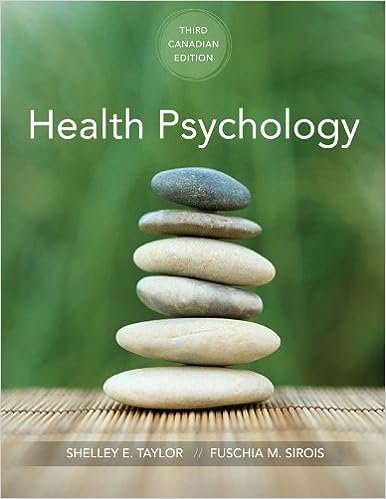Essentials of Understanding Psychology 13Th Edition By Robert Feldmen – Test Bank
Chapter 6 Memory
1) The process by which we encode, store, and retrieve information is known as
- A) perception.
- B) memory.
- C) rehearsal.
- D) cognition.
2) Which of the following sequences best reflects the order in which memory processes occur, from first to last?
- A) encoding → storage → retrieval
- B) storage → retrieval → encoding
- C) encoding → retrieval → storage
- D) storage → encoding → retrieval
3) Material in memory storage has to be located and brought into awareness to be useful. This process is known as
- A) potentiation.
- B) retrieval.
- C) encoding.
- D) storage.
4) When answering such questions as “Who was your date to the junior prom?” or “Which costume did you wear last Halloween?” you are relying most explicitly on the memory process of
- A) encoding.
- B) potentiation.
- C) retrieval.
- D) storage.
5) Which of the following sequences best reflects the order of stages in the three-stage model of memory?
- A) sensory memory → short-term memory → long-term memory
- B) short-term memory → sensory memory → long-term memory
- C) short-term memory → working memory → long-term memory
- D) working memory → short-term memory → long-term memory
6) ________ memory refers to the initial, momentary storage of information that lasts only an instant.
- A) Working
- B) Long-term
- C) Sensory
- D) Short-term
7) Which of the following is TRUE of sensory memory?
- A) The precision of sensory memory is low due to its brief duration.
- B) Sensory memory is the memory store in which information first has meaning.
- C) Sensory memory permits us to keep information in an active state briefly so that we can do something with the information.
- D) Sensory memory can store an almost exact replica of each stimulus to which it is exposed.
8) Iconic memory and echoic memory are types of
- A) sensory memory.
- B) short-term memory.
- C) semantic memory.
- D) declarative memory.
9) Iconic memory, a type of sensory memory, reflects information associated with the
- A) olfactory system.
- B) gustatory system.
- C) visual system.
- D) auditory system.
10) A research participant is required to report as much of a poem as he can remember, immediately after having read the poem once. We would expect the greatest number of recall errors in lines
- A) at the beginning of the poem.
- B) in the middle of the poem.
- C) at the end of the poem.
- D) anywhere in the poem.











Reviews
There are no reviews yet.